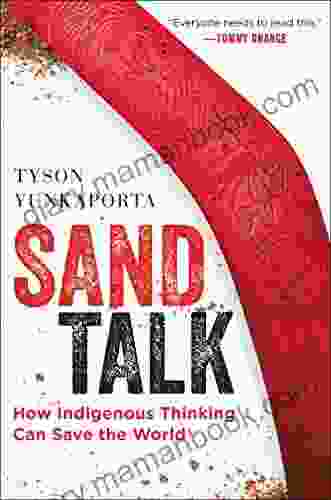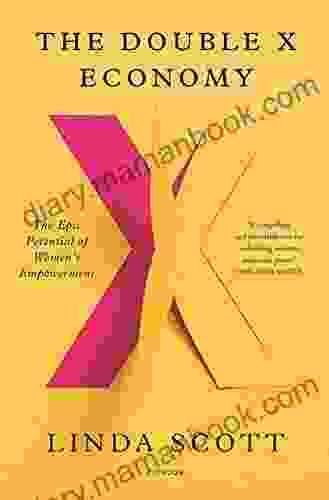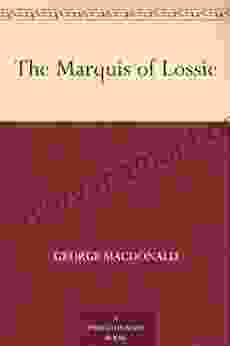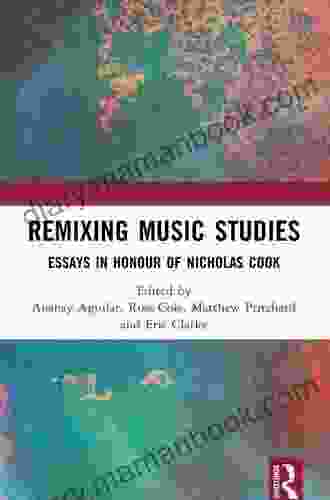How Indigenous Thinking Can Save the World

In the face of unprecedented environmental challenges and social strife, the world is in desperate need of new perspectives. Western models of development have led to rampant destruction of the natural world and deep inequalities within human societies. It is time to turn to Indigenous knowledge and wisdom for guidance.
Indigenous peoples have a unique understanding of the interconnectedness of all living things. Their cultures are based on a deep respect for the environment and a belief in the stewardship of the Earth. Indigenous thinking offers invaluable lessons for how we can live in harmony with nature and create a more just and sustainable world.
The Principles of Indigenous Thinking
4.7 out of 5
| Language | : | English |
| File size | : | 4977 KB |
| Text-to-Speech | : | Enabled |
| Screen Reader | : | Supported |
| Enhanced typesetting | : | Enabled |
| X-Ray | : | Enabled |
| Word Wise | : | Enabled |
| Print length | : | 256 pages |
Indigenous thinking is based on a set of core principles that are essential for understanding its worldview. These principles include:
- Holism: Indigenous peoples view the world as a interconnected web of relationships. Everything is connected to everything else, and the health of one part of the system affects the health of the whole.
- Reciprocity: Indigenous peoples believe that we have a responsibility to give back to the Earth what we take from it. This principle extends to all our relationships, with other humans, with animals, and with the environment.
- Sustainability: Indigenous peoples have a long history of living in balance with the natural world. They have developed sustainable practices that allow them to meet their needs without depleting resources.
- Respect: Indigenous peoples have a deep respect for all living things. They believe that all beings have value and deserve to be treated with dignity.
How Indigenous Thinking Can Address the World's Challenges
The principles of Indigenous thinking offer a powerful framework for addressing the world's most pressing challenges. Here are a few examples:
- Climate change: Indigenous peoples have a wealth of knowledge about how to adapt to and mitigate the effects of climate change. Their traditional practices include sustainable land management, water conservation, and renewable energy technologies.
- Biodiversity loss: Indigenous peoples are the traditional stewards of over 80% of the world's biodiversity. They have a deep understanding of the interconnectedness of species and ecosystems. Indigenous knowledge can help us to develop strategies for protecting biodiversity and restoring degraded ecosystems.
- Social inequality: Indigenous peoples have a long history of living in egalitarian societies. They have developed systems of governance that are based on consensus and respect for diversity. Indigenous knowledge can help us to create more just and equitable societies.
The Importance of Indigenous Rights
Indigenous peoples are the rightful owners of their traditional lands and resources. They have a right to self-determination and to the protection of their cultures and way of life. Recognizing and respecting Indigenous rights is essential for creating a more just and sustainable world.
Indigenous thinking offers a profound and timely alternative to the dominant Western worldview. Its principles of holism, reciprocity, sustainability, and respect provide a roadmap for living in harmony with nature and each other. By embracing Indigenous knowledge and wisdom, we can create a better future for all.
Call to Action
We must all work to support Indigenous peoples and their rights. We can do this by:
- Educating ourselves about Indigenous cultures and histories.
- Supporting Indigenous businesses and organizations.
- Advocating for policies that protect Indigenous rights.
Together, we can create a world where Indigenous peoples are respected and their knowledge is valued. A world where we live in harmony with nature and each other.
4.7 out of 5
| Language | : | English |
| File size | : | 4977 KB |
| Text-to-Speech | : | Enabled |
| Screen Reader | : | Supported |
| Enhanced typesetting | : | Enabled |
| X-Ray | : | Enabled |
| Word Wise | : | Enabled |
| Print length | : | 256 pages |
Do you want to contribute by writing guest posts on this blog?
Please contact us and send us a resume of previous articles that you have written.
 Top Book
Top Book Novel
Novel Fiction
Fiction Nonfiction
Nonfiction Literature
Literature Paperback
Paperback Hardcover
Hardcover E-book
E-book Audiobook
Audiobook Bestseller
Bestseller Classic
Classic Mystery
Mystery Thriller
Thriller Romance
Romance Fantasy
Fantasy Science Fiction
Science Fiction Biography
Biography Memoir
Memoir Autobiography
Autobiography Poetry
Poetry Drama
Drama Historical Fiction
Historical Fiction Self-help
Self-help Young Adult
Young Adult Childrens Books
Childrens Books Graphic Novel
Graphic Novel Anthology
Anthology Series
Series Encyclopedia
Encyclopedia Reference
Reference Guidebook
Guidebook Textbook
Textbook Workbook
Workbook Journal
Journal Diary
Diary Manuscript
Manuscript Folio
Folio Pulp Fiction
Pulp Fiction Short Stories
Short Stories Fairy Tales
Fairy Tales Fables
Fables Mythology
Mythology Philosophy
Philosophy Religion
Religion Spirituality
Spirituality Essays
Essays Critique
Critique Commentary
Commentary Glossary
Glossary Bibliography
Bibliography Index
Index Table of Contents
Table of Contents Preface
Preface Introduction
Introduction Foreword
Foreword Afterword
Afterword Appendices
Appendices Annotations
Annotations Footnotes
Footnotes Epilogue
Epilogue Prologue
Prologue Richard Beard
Richard Beard John P Miller
John P Miller Rafael G Esteque
Rafael G Esteque Ben Peller
Ben Peller Jeff Garrett
Jeff Garrett Carol Benton
Carol Benton Linda Castillo
Linda Castillo Vikram Roy
Vikram Roy Aleksandar Miljkovic
Aleksandar Miljkovic Saranna Dewylde
Saranna Dewylde Jack Kerouac
Jack Kerouac John Gleeson
John Gleeson Sue Sinclair
Sue Sinclair Dante Alighieri
Dante Alighieri Mark Batterson
Mark Batterson Scholastic
Scholastic Mur Lafferty
Mur Lafferty Robert M Hazen
Robert M Hazen Fiston Mwanza Mujila
Fiston Mwanza Mujila Claudia Ulloa Donoso
Claudia Ulloa Donoso
Light bulbAdvertise smarter! Our strategic ad space ensures maximum exposure. Reserve your spot today!
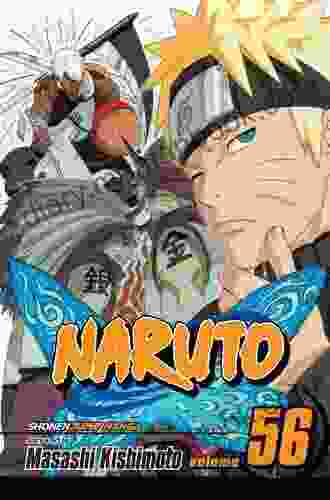
 Elton HayesDelving into the Heartfelt Reunion of Team Asuma: A Narrative Exploration of...
Elton HayesDelving into the Heartfelt Reunion of Team Asuma: A Narrative Exploration of...
 Branson CarterMercy Atlee Pine: The Captivating Female Protagonist of David Baldacci's...
Branson CarterMercy Atlee Pine: The Captivating Female Protagonist of David Baldacci's... Jared NelsonFollow ·11.7k
Jared NelsonFollow ·11.7k Clay PowellFollow ·8.7k
Clay PowellFollow ·8.7k Elton HayesFollow ·11.1k
Elton HayesFollow ·11.1k Cole PowellFollow ·18.8k
Cole PowellFollow ·18.8k Doug PriceFollow ·3k
Doug PriceFollow ·3k Frank MitchellFollow ·14.8k
Frank MitchellFollow ·14.8k Deion SimmonsFollow ·14.7k
Deion SimmonsFollow ·14.7k Chase MorrisFollow ·14k
Chase MorrisFollow ·14k

 Jorge Luis Borges
Jorge Luis BorgesThe Truth About the 15 Qualities That Men Secretly Admire...
Every woman wants to be loved and...

 Francisco Cox
Francisco CoxPlague Ship: Unraveling the Mystery of the Oregon Files
The Oregon Files, a collection of classified...
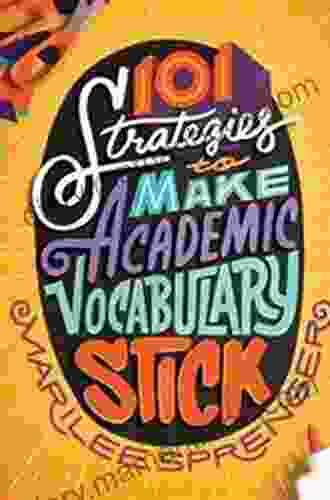
 Rudyard Kipling
Rudyard Kipling101 Strategies to Make Academic Vocabulary Stick: A...
Academic vocabulary is an...
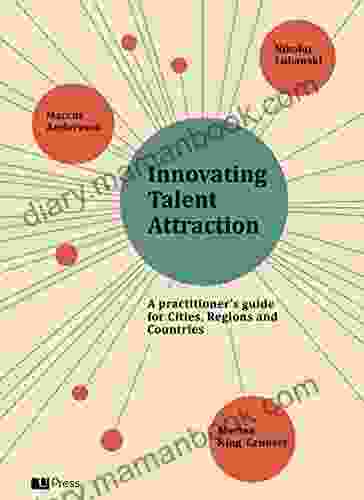
 Fletcher Mitchell
Fletcher MitchellPractitioner Guide for Cities, Regions, and Countries:...
The world is...
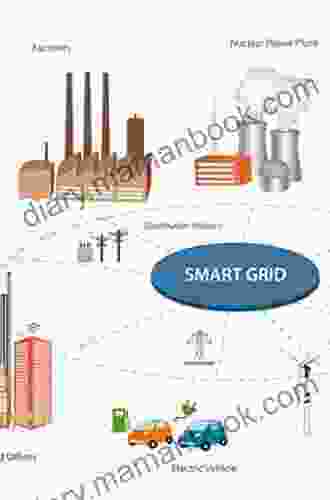
 Emilio Cox
Emilio CoxOptimization and Security Challenges in Smart Power Grids
Smart power grids (SPGs) are emerging as a...

 Chandler Ward
Chandler WardMiles Davis and the Civil Rights Movement in America: A...
Miles Davis, the iconic jazz...
4.7 out of 5
| Language | : | English |
| File size | : | 4977 KB |
| Text-to-Speech | : | Enabled |
| Screen Reader | : | Supported |
| Enhanced typesetting | : | Enabled |
| X-Ray | : | Enabled |
| Word Wise | : | Enabled |
| Print length | : | 256 pages |


